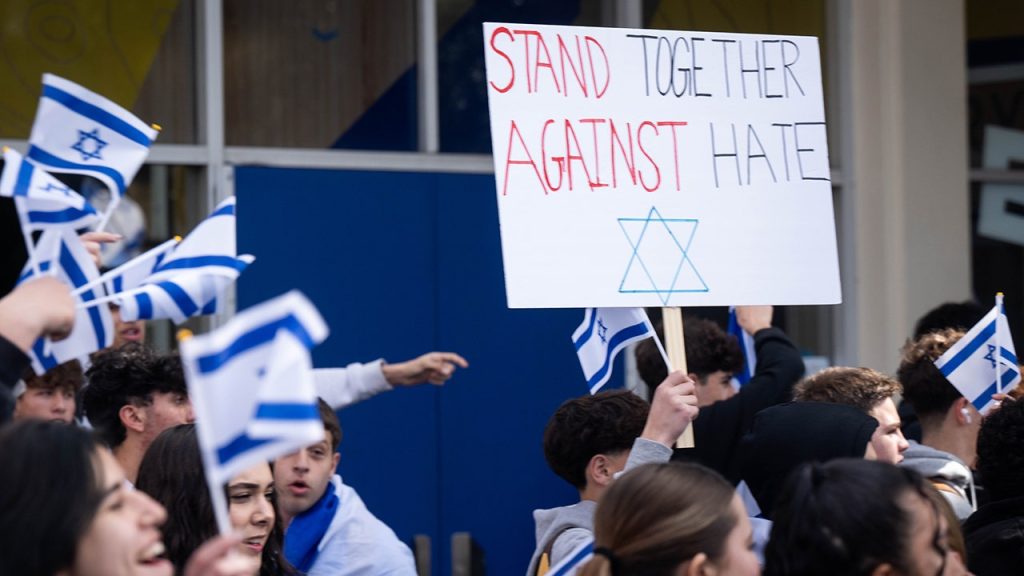The escalation of antisemitism following a terror massacre by Hamas in Israel has led to attacks on Jewish communities worldwide. In the U.S., Rabbi Moshe Hauer of the Orthodox Union noted a shift in the level of security felt by American Jews, with rolling antisemitism becoming a daily reality. The Anti-Defamation League reported over 10,000 antisemitic incidents in the past year, including harassment, assaults, and vandalism, with many incidents taking place at anti-Israel rallies and Jewish institutions. Politicians and the United Nations have contributed to anti-Israel hate, with some supporting Hamas and questioning Israel’s right to exist.
Anti-Israel sentiment on college campuses in the U.S. has intensified, with protests excluding Jewish students and terror flags being flown. Anti-Israel protesters have targeted school administrators and business leaders with threats and vandalism. An ISIS-inspired attack on the Jewish community was thwarted by authorities in the U.S. and Canada, highlighting the continued dangers faced by Jewish communities. Human rights attorney Brooke Goldstein criticized President Biden and other leaders for failing to address antisemitism, particularly when it comes from within their own political ranks.
Incidents of antisemitic hate have also risen in Europe, with Sweden seeing an 800% increase in antisemitic incidents. In France, there has been a 430% increase in Jews applying to immigrate to Israel due to rising antisemitism. The United Kingdom has also seen a surge in antisemitic hate, with a record number of incidents reported in the first half of 2024. Attacks on Jewish school children and a Chabad Rabbi in the UAE have further highlighted the global nature of antisemitism.
Synagogues worldwide have been targeted in arson attacks, with incidents reported in Montreal, Melbourne, and Toronto. The Simon Wiesenthal Center issued travel advisories for Australia and the Netherlands in response to persistent antisemitism and violence against Jews. In the U.S., anti-Jewish intolerance has infiltrated various sectors, including universities, workplaces, and the entertainment industry. Rabbi Abraham Cooper noted the challenges ahead but expressed hope in the resiliency of the Jewish community and the support of incoming government officials, such as U.S. Ambassador to the United Nations Rep. Elise Stefanik.
Overall, the rise in antisemitic hate crimes and attacks on Jewish communities worldwide has created a climate of fear and intolerance. From Europe to the United States, Jewish individuals and institutions have faced threats, violence, and exclusion. Efforts to combat antisemitism have been met with challenges, including political reluctance to address the issue and a lack of accountability for perpetrators. Moving forward, the Jewish community remains resilient in the face of these challenges, seeking support from government officials and advocacy organizations to ensure their safety and protection.














